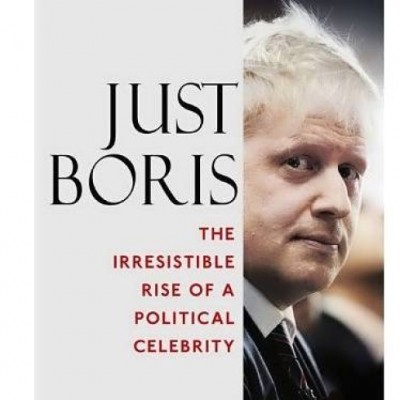David Mentiply has been reading Just Boris: The Irresistible Rise of a Political Celebrity
 Back in 2009, City Hall blogger Adam Bienkov branded the Mayor ‘Boris the Boring’. This is perhaps not the first caricature that springs to mind when people think of Boris, but it actually turned out to be rather prescient. Boris has been the “do little mayor”.
Back in 2009, City Hall blogger Adam Bienkov branded the Mayor ‘Boris the Boring’. This is perhaps not the first caricature that springs to mind when people think of Boris, but it actually turned out to be rather prescient. Boris has been the “do little mayor”.
That’s not to say there aren’t some interesting titbits in Sonia Purnell’s biography, Just Boris. Perhaps Purnell’s best insight into “Boris the politician” centres around the mayoral election campaign of 2008.
She describes how in the days leading up to polling day Lynton Crosby, Boris’ Australian campaign coordinator, and Nicholas Boles, the acting chief of staff, came into conflict over strategy. Crosby’s team were adamant that Boris could not be seen to be complacent by planning for after the election. Boles disagreed but conceded defeat nevertheless, leaving team Boris somewhat rudderless in its early days.
None had experience of running government and, according to Boles, there were ‘no obvious people you can slot into obvious jobs as you have with a shadow government’.
Purnell reveals how in the frantic pre-polling days Lord Marland, another of Johnson’s campaign chiefs, suggested the idea of making Boris a ‘chairman mayor’ supported by a ‘top-flight chief operating officer’. In essence, Boris would be the public face of the mayoralty – ‘putting bubbles in the champagne’ whilst someone else would actually run City Hall on a day-to-day basis.
Boris reportedly jumped at the idea. It seems that even the ‘single most wonderful job in British politics’ was not to Boris’ taste entirely. He was far more interested in the glamorous presentation side of the job rather than the administrative responsibilities that go with being mayor.
In the end, the ‘chairman mayor’ idea was shelved, and Boris entered City Hall in May 2008 as a rather isolated figure without a staff to call his own. As Purnell notes, there were no Johnsonites or close political comrades to steer the way forward. Whereas Ken Livingstone had brought a close-knit “cadre” of allies, Boris arrived ‘virtually alone’. Does this lack of organisation that Purnell evokes explain Boris’ tentative start? Remember: within two months of assuming office, the Johnson administration lost the much heralded Ray Lewis after allegations of financial misconduct.
It is highlighted in Just Boris how even the appointment of that most pivotal of roles in modern politics – the director of communications – came about by chance. Guto Harri, the ex-BBC reporter, who was by this time working for a London PR agency, called Boris two days before voters went to the polls. Whilst Harri, a contemporary of Boris’ at Oxford, asked for some information to present to his clients, Boris suggested he might like to work for him as his spin doctor. ‘It sounded like the idea had just popped in to his head right then, rather than anything premeditated’, remembers Harri.
Is this the closest we have to an accurate depiction of Boris? Our mayor of four years, who led our city throughout the recession, the summer riots and the long preparations for the Olympics, never really had a vision for London, let alone a plan. He made it all up as he went along. Maybe, just maybe, that was the secret to his success.



0 Comments
You can be the first one to leave a comment.